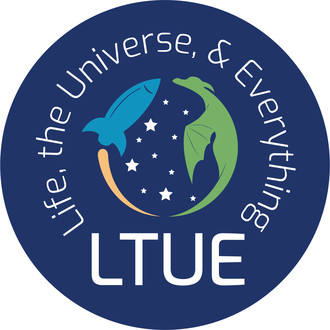
Had a wonderful time teaching about how to create page-turners. Here’s a PDF of the PowerPoint as promised.
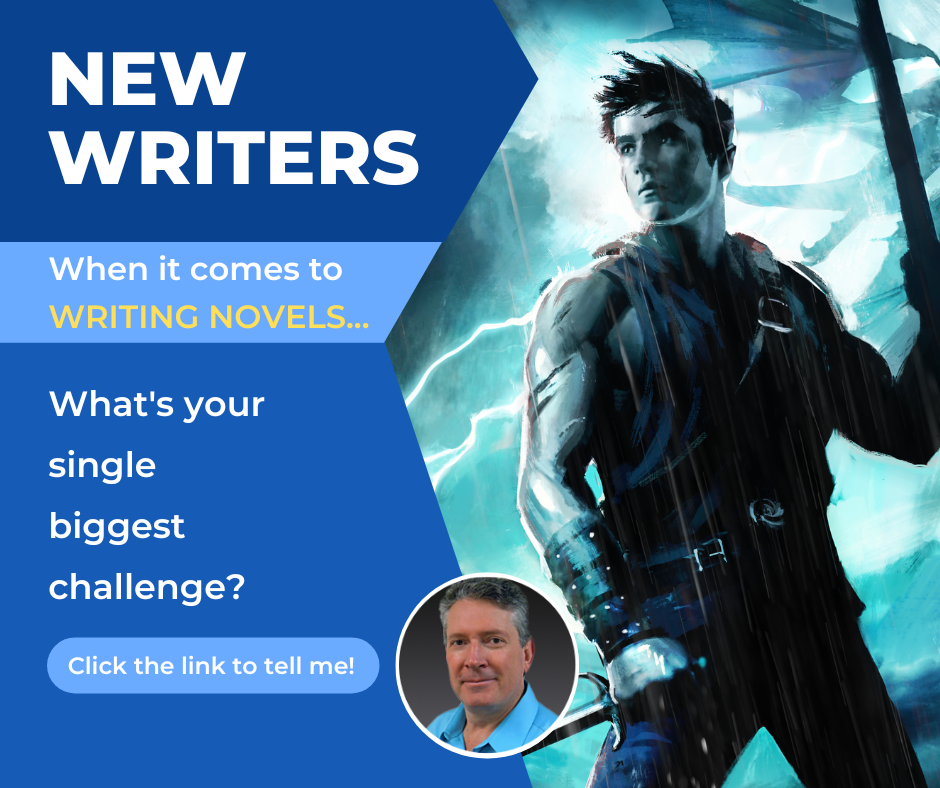
I’m about to put together a brand-new novel writing boot camp, but before I do that I want to know what would be most helpful to YOU.
So if you want to write novels, my question to you is this…
When it comes to writing novels, what’s YOUR single biggest challenge, frustration, or concern?
Please CLICK THE LINK to tell me.
As a thank you, those that answer the question will get a seat at a virtual, 1-hour training session I’m putting on where you discover 3 key principles of keeping your readers hooked.
I look forward to the insights.
You’re awesome ![]()
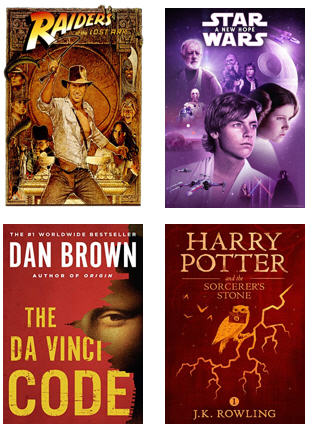
I was invited to present a master class at the 2022 StoryMakers conference in Provo, Utah.
We all want to develop plots that delight readers. Maybe we have ideas for the characters. Maybe we have ideas for the setting. Maybe we even have a couple of scenes.
But a novel needs 40, 50, 60 or more scenes.
How do you figure out what happens next, and do it in a way readers love?
There’s one tool that can help.
Harry Potter, Lord of the Rings, and The Da Vinci Code all had it. So did Star Wars, Raider of the Lost Ark (1, 2, and 3), Taken, James Bond, The Wheel of Time, and thousands of other stories, TV episodes, and films.
It’s what I call the wanted object, sometimes known as the MacGuffin.
A good MacGuffin will not only make your plotting easier, it can also inject a wow factor into your story that readers love.
In this session, the writers learned what a MacGuffin really is and how you can use it to propel the plot and keep readers turning the page.
Here’s a PDF of the presentation.
2022 john brown – the secret that propels so many blockbuster plots2
And here’s the PDF of the handout.
2022 john brown – the secret that propels so many blockbuster plots handout
Enjoy!
Mrs. Brown, my wife, teaches language arts for the 7th and 8th grades as well as reading comprehension. She’s big on reading. She wants to provide every opportunity for kids to not only get good at it, but also learn to love it.
And so her walls are lined with bookshelves full of awesome books teens love. She reads the first chapters of books to her classes to let them sample various stories. She features their book reports. She has them paste the covers of the books they’ve read on pages displayed around the classroom. And the school’s awesome librarian supports with her own programs.
The 7th and 8th grade students at Rich Middle School are marinated in a big celebration of reading.
In Mrs. Brown’s class, it’s fairly straight forward to get an A on reading, which is a huge part of your grade—all you’ve got to do is read.
But how much reading do they need to do? How do you track it? And what books should they read?
Check this out.
First, she tests each student to see what his or her reading speed is.
Next, she takes the number of hours they’re supposed to be reading each week for homework (I think it’s 2 or 2.5), then does the math to get a feasible reading word count for the trimester for each student. She may adjust it a bit, depending on the student’s ability.
Third, she presents that number to the student, and the two of them set a word count goal for the trimester. Talk about an individualized goal.
If you want to get an A in reading, all you have to do is reach that word count goal.
How do you know how many words a book has?
The Accelerated Reader program provides that information.
But how does she know that they’ve read the books?
She uses the Accelerated Reader tests. And if there isn’t one, the student can write a report.
And what books do the students read?
Any dang book they like.
I love this. The kids get to select their own books and just read, read, read.
Another part of this is that she pings each student once a week to ask them what book they’re reading, what page they’re on, and what they think of the book. This weekly check-in provides the more frequent accountability students of that age need.
Yesterday, she received this report from one of her 8th grade boys who is reading Prey, the first book in The Drovers series.
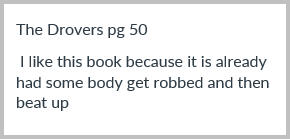
Oh, yeah.
I’ll take that any day (grin).
Rock on, budding reader.
An avid reader friend of mine began reading through the books in a list called “100 books you must read before you die.”
She got to Jack Kerouac’s On The Road and went to Facebook and posted the following: “I don’t get the appeal. It’s about a group of boys/men who are irresponsible, drunks, whoring around taking advantage of others and being enabled by their women. Why is this a classic and why should I have wasted my time on it? Can some of my literary friends explain? I hated a brave new world and the handmaid’s tale too.”
Is the book a classic?
Should she read it before she dies?
Is it really that important?
Let me share an edited version of my response and then provide my list of 30 books you should read before you die.
*
Annette, the unfortunate truth is that these lists of “classics” are a sham because there is no objective criteria for determining literary excellence.
Or maybe I should say that measuring quality in the arts isn’t like measuring the unambiguous, objective score of a baseball game. After books exhibit a certain level of proficiency, it becomes increasingly difficult to distinguish the quality of one book from another, especially because much of this depends on a reader’s interests and subjective experience of the story.
When it becomes hard to rank performances, people rely on other measures. One of the most powerful is social networks.
So if two readers find two different books that blow them away, one of the books might get all the attention because the one book gets picked up by a news service (The New York Times) or a platform (the Oprah Book Club effect) or some other social network of influence. A lot of the so-called literary classics only appear on various lists because they tapped into the academic network, which kept them alive far longer than they would have lasted otherwise.
On The Road is simply a book that made a stir among some circles in the 1950s. That’s it.
Was it more important or of higher quality than Exodus? The Chronicles of Narnia? Lord of the Rings? A Town Like Alice? All published in the 1950s as well.
It depends.
If you’re wanting to understand the 1950s beat culture, it would be an important book.
But if you’re wanting to understand fantasy writing of the time, it wouldn’t.
If you’re wanting to read a book that’s had a huge impact on popular culture, well, LOTR beats On The Road like a dog.
Some people have the feeling that the so-called classics have some inherent medicinal value because someone put them on a list and called them classics.
Nope. They’re just stories. Some of which can shed light on the issues and interests of a part of the culture in a given period. But if you’re not interested in that specific sub-culture, who cares?
And if you’re reading to be entertained, moved, uplifted, or educated—which ones do that best for Annette is for you to decide.
So all that to say I wouldn’t devalue your reaction to the book ![]()
*
I’m now going to give you my list.
But it’s not going to be a list of titles. Nor will it focus on a book’s impact on some sub-culture of a given period.
It’s going to be a real list. One that focuses on what so many of us go to stories for.
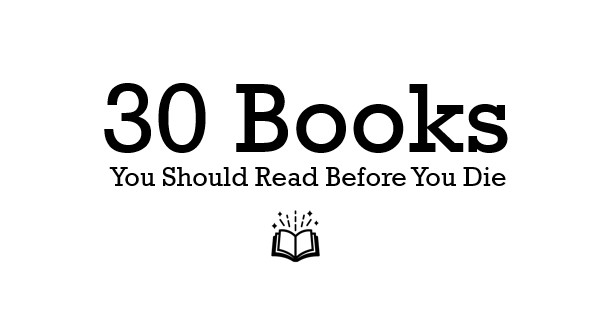
We could do more than 30, couldn’t we?
Like the one that makes you think people from a different time period are just like us. And the one that makes you think people from that same period are completely alien.
But I think we’ll stop. That there above is a list.
Those are 30 books I think everyone will want to read before they die.